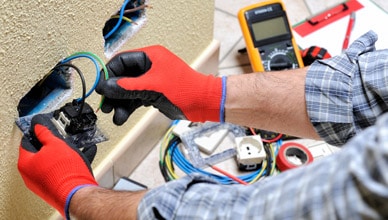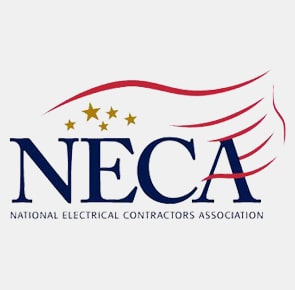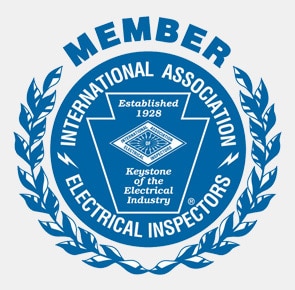University Headquarters (HQ) is an industry-leading, independent educational organization that provides independent college rankings using a proprietary formula to create first class unbiased rankings. The team at University HQ strives to provide accurate and trustworthy rankings that highlights the best programs for electricians.
Compare Popular Online Trades Programs
Electricity affects virtually everything in the modern world. It’s a power source often taken for granted until there is an issue, and that’s when we need those with electrician skills. Becoming an electrician is an excellent career plan because they are in high demand and, as long as our civilization depends on electricity, that's not going to change. The Bureau of Labor Statistics (BLS) estimates demand for electrical work done by a journeyman electrician or master electrician will increase 9% by 2026.
While all electricians obviously work with the wires and outlets that carry electricity, specific duties depend on whether or not they are residential or inside electricians, and of course, a journeyman electrician has not yet finished their apprenticeship training program to become an electrician. The former (residential) install wiring in dwellings and repair electrical issues based within a home or building. Many residential electricians have their own businesses or work for building contractors. Inside electricians maintain and repair electrical equipment in industry. Then there are electricians employed by major power companies, who might work on power lines or on the electrical grid itself. You can earn a place in either of these positions by becoming a licensed electrician or master electrician.
Since electricians are in demand nationwide, individuals with these skills can find work almost anywhere. Because there is an inherent danger in working with electricity, electricians must observe strict safety protocols at all times. Depending on the type of work done, electricians should expect to work “on demand” to repair outages or malfunctioning equipment. Because electricians perform a great deal of physical work, they must stay fit and in good condition.
Those who are looking to become an electrician must enter an electrician program, which may be offered by trade schools, an electrician school, or a technical school. Usually they won't need more than a high school diploma to get into these electrician programs, though it depends on the electrician school's requirements. Electrician training in trade schools or a technical school will include hands-on training and some learning of electrical code, electrical theory, and electrical technology in general. After completing electrician programs, students may earn some type of degree in electrical technology, though this isn't always required to become an electrician. Then, a journeyman electrician will begin an apprenticeship program to gain on the job training which goes beyond electrical theory and gives them hands-on experience.

Components of A Successful Career
A successful electrician career can be as individual as the electrician. For some people, it is establishing a business they can sell at retirement or pass down to children who want to pursue electrician careers. For others, it is working with top unions, such as the International Brotherhood of Electrical Workers, and enjoying the benefits provided. For many electricians, the satisfaction of knowing they have restored electricity to people devastated by storms and other natural disasters is one of the most rewarding parts of the job.
Get Matched With Online Electrician Trades Programs
What Does an Electrician Do?

Typical Electrician Program Requirements
Electrician trade school require either a high school diploma or equivalent, such as the GED. Applicants must be at least 18 years old. Students intending to pursue a career as an electrician should have good math skills, and satisfactory grades in algebra are important before embarking on trade school. The school may require a potential student to pass a basic aptitude test.
Typical Electrician Certifications Needed
Certification is necessary for an electrician working in any field but the exact certifications required depend on the type of job. Such certifications include a Certified Electrical Safety Worker, Electronic Safety Compliance Professional, and Certified Electrical Safety Technician. Some countries have national standards for electrician certification, but that is not true in the US. Instead, each state has its own electrician certification requirements. You can find these requirements listed on the state’s professional licensing board website. Some states have reciprocal electrician licensing agreements with other states so that a licensed professional may move between these states without an interruption in their ability to work. Many companies, and some states, require a master’s certification, which requires additional years of apprenticeship.
Academic Standards
A college degree is not required to become an electrician, but the industry has strict certification, apprenticeship, and licensing requirements. Before becoming an apprentice, the student electrician must learn the basics of electrical safety, how to read blueprints, and other aspects of the trade.
Exam or Experience Needed for Certification
Once the training program is completed, the person must pass an exam, which varies by state. Later on, if they wish to become master electricians, they must pass another, more stringent examination. These tests are often known as the “Electrical Journeyman Exam” and the “Master Electrician Exam”. A full “Electrical Contractor License” is often reserved for those who have passed the master exam, though there are exceptions, as this is decided state-by-state and, even occasionally, by county or city. As previously noted, electricians must undergo long apprenticeships, generally lasting four years for an electrician and perhaps eight years or more to qualify as a master electrician.
Electrician Apprenticeship
Expect to serve a paid apprenticeship of four to five years after graduating from trade school. Apprenticeships will also include 144 annual hours of classroom time, although the bulk of your time will be spent on the job. Depending on the state, the apprentice may have to register for an apprenticeship and an electrician apprenticeship license. Specialization occurs during the apprenticeship, such as outside or inside lineman or residential wireman.
Electrician Degree & Certification Options
-
Installation Electrician: These electricians install and maintain the wiring in various types of buildings.
-
Maintenance Electrician: These electricians keep large, vital electrical systems working and in good repair.
-
Electrotechnical Panel Builder: A panel builder constructs and maintains control panels. Such control panels are found on HVAC equipment and other sources.
-
Instrumentation Electrician: This type of electrician installs, maintains, and troubleshoots equipment. They ensure all equipment is up to relevant codes. Many instrumental electricians work in manufacturing.
-
Electrical Machine Repairer & Rewinder: These electricians test and repair large electric items, as well as install them. Examples of the types of items they work on include escalators, municipal street lighting systems, industrial machine panels, and similar large projects.
-
Highway Electrical Systems Electrician: As the name implies, these electricians work on highways and roads, installing and maintaining traffic signals and street lights. All of their work must meet government standards not just for electricity, but also for the highway or roadway infrastructure.
-
Low Voltage Electrician: Also known as voice data video electricians, these electricians repair and maintain low voltage systems, such as those found in cable and digital TV, broadband, fiber optic networks, security systems, and telephones.
-
High Voltage Electrician: These electricians work on wires or cables above 600 volts. Their work includes repairing, installing, troubleshooting, and servicing such high voltage electrical systems.
Here are the main types of Electrician programs:
Find Your Online Electrical Trade Program
Electrician Certificates
Typical courses include:
- Introduction to Electricity
- Residential Wiring
- Commercial Wiring
- Electrical Codes
- Voltage Metering
Online Associate’s Degree
Electricians can earn an online associate’s degree in electronics at a community college. While such a degree is sufficient for a career as an electrician, it can also serve as a springboard for those students who may want to pursue a bachelor’s degree in the future, especially if they want to become an electrical contractor.
Typical courses include:
- Introductory Algebra
- Circuit Electronics
- Industrial Safety
- Computer Programming for Technology
Potential Careers & Salaries for Grads
There is not necessarily a large difference in salary between students who receive an electrician certification from a trade school and those who receive an online associate’s degree from a community college, but the latter may include some of the apprenticeship necessary to become a licensed electrician. Thus, the community college graduate may enter a formal apprenticeship program at a higher level than the student with the trade school certification. If the electrician with an online associate’s degree wants to become an electrical contractor, they must finish two more years of school to obtain a bachelor’s degree, while the individual with only certification must put in four years to obtain their goal.
Electrician salaries vary by experience, region, and areas of specialization.
Electrician Median Salaries by Occupation
Annual Median Salary by Occupation
| Occupation | Entry-Level | Mid-Career | Late-Career |
|---|---|---|---|
| Electrician - Certified | $27,500 | $57,500 | $50,800 |
| Apprentice electrician | $33,000 | $37,500 | $58,000 |
| Master electrician | $51,400 | $62,600 | $72,400 |
| Low voltage electrician | $43,000 | $45,500 | $72,000 |
| Industrial electrician | $40,000 | $61,100 | $66,800 |
| Maintenance electrician | $55,000 | $58,100 | $60,200 |
Important Questions to Ask (FAQ)
How long does it take to earn an online Electrician Degree or Certification?
While it may take as little as nine months to a year to obtain an electrician degree from a vocational school, that is just the first step. Expect a paid apprenticeship after graduation that may last between four to five years. After one year of apprenticeship, an apprentice can work under the supervision of a journeyman electrician. Once the apprenticeship is finished, they become journeyman electricians. Keep in mind that because technology changes so rapidly, electricians must stay abreast of these changes with regular continuing education.
How much does an Online Electrician Trade School Degree cost?
Much depends on the type of school the student attends. Electrician degrees are offered by community and technical colleges as well as trade schools. Expect to spend approximately $10,000 or more to receive an associate degree from a community college, and $5,000 and up to receive a trade school degree.
How many students graduate “on time,” in 12 months or 24 months?
On time graduation is an important factor when considering a trade school. If a school has a low on time graduation rate, that may indicate issues with staff or the actual coursework. A low on time graduation rate is not necessarily a deal breaker but the reasons for it bear some additional investigation when choosing a school.
What kind of online accreditation does the online program hold? How is it regarded in the field?
Look for a vocational school accredited by the American Commission of Career Schools and Colleges (ACCSC). This organization is recognized by the U.S. Department of Education as “the designated institutional accrediting body for over 700 post-secondary, trade, and technical schools that provide education to over 150,000 students in a wide variety of vocational programs each year,” according to their website.
Software, Technology & Skills Needed
Electrician careers are highly technical and those in the field should expect to update their skills constantly in response to technological changes. In the era of the Internet of Things, with coffee pots, doorbells, and thermostats having internet connection, it’s important to keep up with the way these new integrated electronics work.
Potential Scholarships
-
DEED Funding
Amount: $2,000
Deadline: February 15, October 15
Sponsored by the American Public Power Association, students eligible for DEED scholarships must be enrolled full-time or planning to enroll full-time in a vocational school, line worker school, or two- or four-year college or university in the US. A DEED member utility must sponsor each application for the $2,000 scholarship paid directly to the school. In addition, paid internships are also available for work at DEED member utilities.
-
Delaware Community Foundation Generation III Scholarships
Amount: $1,000 (Up to four years)
Deadline: March 15
Delaware residents planning to attend the University of Delaware, Delaware Technical and Community College, Delaware State University, Goldey-Beacom College, Lincoln University, Wesley College, or Wilmington University may apply for this $1,000 annually renewable scholarship. Only students planning to major in a construction or business-related field are eligible.
-
National Electrical Contractors Association Ronald E. Smallwood Scholarship Fund
Amount: $2,500 (On Average)
Deadline: March 30
This scholarship is available to children and grandchildren of employees of NECA contractors. Since its establishment in 2000, the NECA Smallwood Scholarship Fund has awarded 277 scholarships totaling nearly $700,000.
Professional Organizations
- NECA
- IAEI
- WECA

NECA
National Electrical Contractors Association
NECA has 119 chapters nationwide supporting electrical contractors and their industry. Members join their local chapter and, once accepted, the contractor’s company membership is submitted to the national organization by the local chapter. NECA offers online and onsite management courses, as well as technical and business resources. NECA also hosts events providing members with networking opportunities.

IAEI
International Association of Electrical Inspectors
IAEI members include electrical inspectors, installers, contractors, and distributors among others. Every year, approximately 6,000 people participate in IAEI-sponsored training and certification courses. This non-profit organization’s mission statement promotes “electrical safety throughout the industry by providing premier education, certification of inspectors, advocacy, partnerships and expert leadership in Electrical Codes and Standards development.”

WECA
Western Electrical Contractors Association, Inc.
WECA membership is open to electrical contractors throughout California. Not only does WECA offer apprenticeship programs, continuing education, workforce development, and professional development opportunities but it also offers guidance in dealing with public and prevailing wage issues, as well as legal, human resources, and tax assistance.
Choosing an Accredited Vocational School
Before choosing an accredited electrician vocational school, examine the licensing requirements for the state in which you plan to work. That may help you with your decision. Make sure any vocational school you choose complies with the National Electric Code and is accredited by the ACCSC.
Online vs On-Campus vs Hybrid if Available
Electrician degrees are available in on-campus and online formats, but may always require some hybrid of both. Online degrees are suitable for those who may have current work or family obligations and want to learn at their own pace at times convenient to them. However, those pursuing an online electrician degree must take some in-person classes, as hands-on training is a necessity in this field.
Additional Questions
Does the Vocational School Have Post-Graduate Job Placement Assistance?
Since an electrician’s career depends on a good apprenticeship program, do not consider a school that doesn’t offer such a program after graduation. Unlike many other positions, those graduating with an electrician certificate cannot go straight to work in their trade, but must undergo several years of apprenticeship, so apprenticeship placement is critical.
